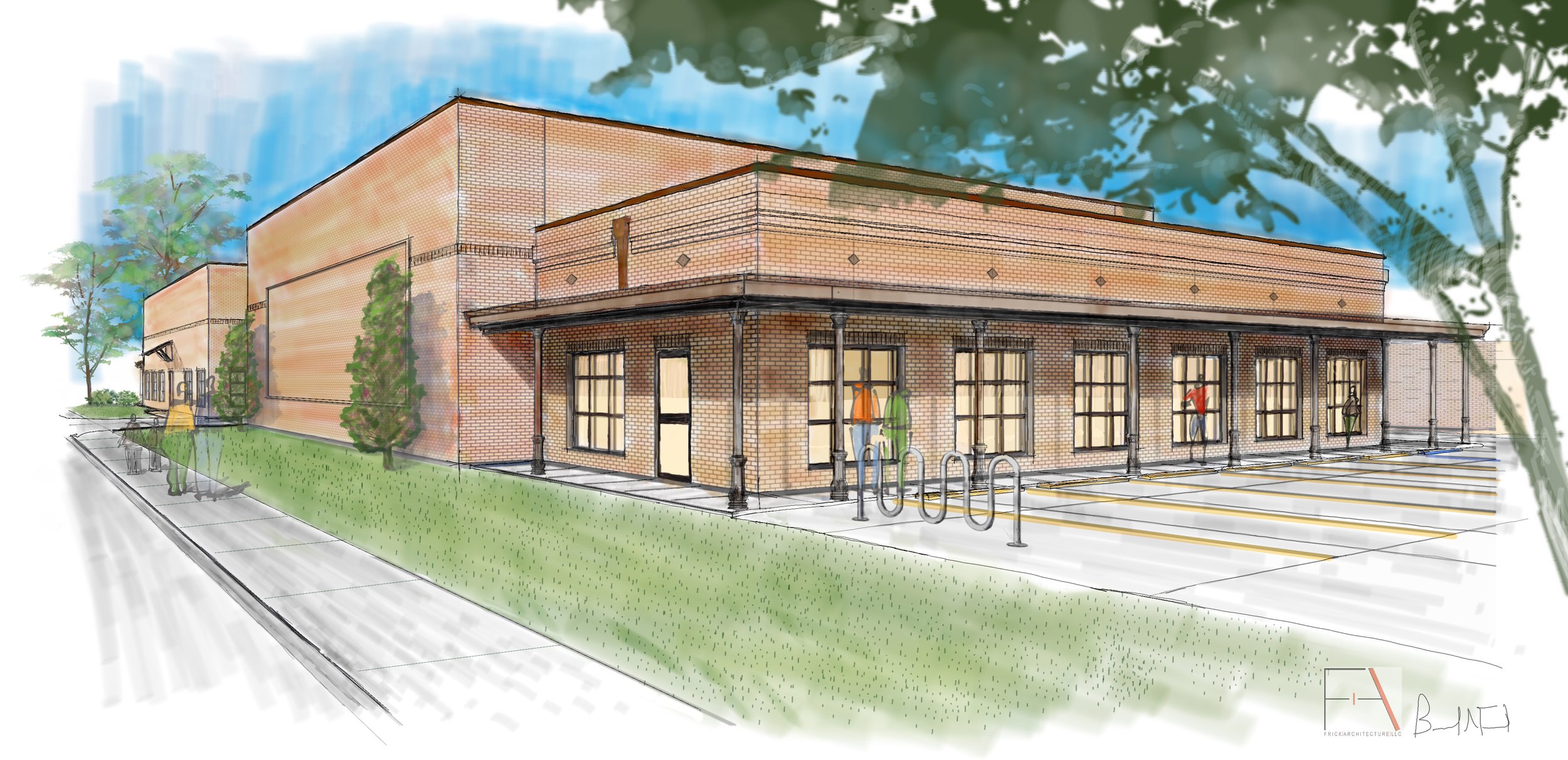Catholic Charities of Acadiana to Build New FoodNet Food Bank Facility Featuring Client Choice Pantry and Neighborhood Grocery Store
Catholic Charities of Acadiana is pleased to announce the development of a new 13,000-square-foot building that will soon become the permanent home of the FoodNet Food Bank, located at 613 W. Simcoe Street in Lafayette. This transformative project is part of the organization’s 50 Years of Serving Capital Campaign, commemorating five decades of compassion, service, and regional community impact. It is being funded through a combination of campaign contributions, state capital outlay support, and a landmark multi-million dollar anonymous local donation—reflecting strong community investment in the future of food access in Acadiana. Groundbreaking is expected to take place this fall.
“We are strengthening our capacity to respond—not just to natural disasters, but to the everyday crisis of hunger,” said Ben Broussard, Chief of External Affairs for Catholic Charities of Acadiana. “This new facility is a critical investment in our mission and will ensure FoodNet Food Bank is prepared to serve Acadiana for years to come.”
Since becoming a program of Catholic Charities of Acadiana in 2019, FoodNet Food Bank has worked to serve those experiencing food insecurity throughout the eight civil parish Acadiana region through a network of partner pantries. The construction of this new facility marks a transformative moment in enhancing how food assistance is delivered throughout the region—with a renewed focus on efficiency, access, dignity, and long-term sustainability.
With the rising cost of groceries and an anticipated reduction in SNAP (Supplemental Nutrition Assistance Program) benefits, food pantries will play an increasingly vital role in helping families facing poverty put food on the table. As economic pressures grow, access to reliable, dignified food assistance will be essential for thousands across Acadiana in the coming years.
“By placing the new FoodNet Food Bank facility just steps away from St. Joseph Diner, we’re creating intentional synergy between two of our longest-standing food and nutrition programs. This proximity allows us to maximize resources and volunteers, streamline logistics, and build greater efficiency into how we prepare and distribute meals and distribute shelf-stable food—ultimately maximizing our impact and stewardship of donor support. It also allows us the ability to offer workforce development opportunities to residents of St Joseph Shelter.”
The building was designed with both daily operations and emergency preparedness in mind. Key features include:
-4,000 square feet dedicated to core food bank functions, including industrial racking systems, forklift access, and a whole building generator to maintain operations during times of natural disaster.
-2,200 square feet of climate-controlled storage for dry goods and 1,700 square feet of refrigeration and freezer space to safely receive and manage perishable food items.
-1,470-square-foot client choice pantry and neighborhood grocery store that offers a dignified experience where neighborhood applicants can access food that best fits their needs—helping to minimize waste and maximize impact.
-1,500-square-foot donation receiving, sorting, and storage area, which will also benefit other Catholic Charities of Acadiana programs such as St. Joseph Shelter, Stella Maris Hygiene Center, and supportive housing services.
-2,230 square feet will be dedicated to flexible offices, meeting space, and a classroom, creating a central hub for volunteer coordination, community gatherings, classes, training, disaster response planning, and collaborative efforts across Catholic Charities programs.
To learn more about the project or explore ways to support it, contact Ben Broussard at ben@catholiccharitiesacadiana.org or call (337) 235-4972 x1208.
Catholic Charities of Acadiana cares for the sacred gift of all human life, especially the most vulnerable. Catholic Charities of Acadiana operates twelve programs that serve those currently experiencing homelessness, hunger, poverty, and situational crisis in Acadiana. Since 1973, its programs have represented a response to the Gospel call to carry out the corporal works of mercy: feeding the hungry, clothing the naked, offering hospitality to the homeless, caring for the sick, visiting the imprisoned, and burying the dead.

